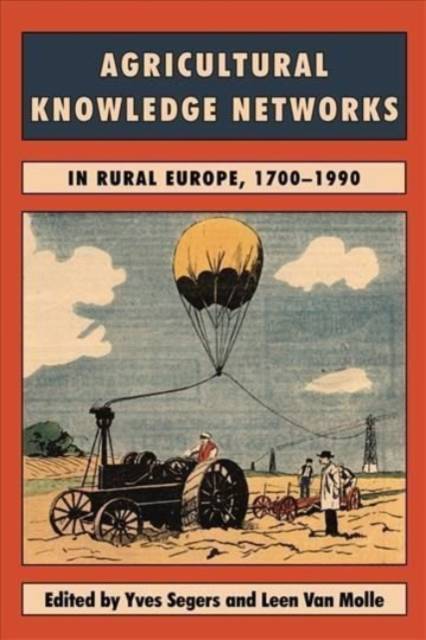
Vous voulez être sûr que vos cadeaux seront sous le sapin de Noël à temps? Nos magasins vous accueillent à bras ouverts. La plupart de nos magasins sont ouverts également les dimanches, vous pouvez vérifier les heures d'ouvertures sur notre site.
- Retrait gratuit dans votre magasin Club
- 7.000.000 titres dans notre catalogue
- Payer en toute sécurité
- Toujours un magasin près de chez vous
Vous voulez être sûr que vos cadeaux seront sous le sapin de Noël à temps? Nos magasins vous accueillent à bras ouverts. La plupart de nos magasins sont ouverts également les dimanches, vous pouvez vérifier les heures d'ouvertures sur notre site.
- Retrait gratuit dans votre magasin Club
- 7.000.0000 titres dans notre catalogue
- Payer en toute sécurité
- Toujours un magasin près de chez vous
Agricultural Knowledge Networks in Rural Europe, 1700-2000
177,45 €
+ 354 points
Description
An examination of how farming expertise could be shared and extended, over four centuries. All kinds of knowledge, from traditional know-how to modern science, are socially contingent and the product of an age-long and permanent social struggle. This book unravels the creation and the exchange of agronomic knowledge in rural Europe, from the early eighteenth century up until the end of the twentieth. It explores the spreading of knowing through the lens of "knowledge networks" where did agricultural knowledge come from and how did one learn to run a farm? Who was involved in this process of knowledge exchange? Which strategies and communicative methods were employed and what kind of networks were active?
The answers to these questions mirror, as the book illustrates, the inventiveness of the actors on the scene: the creativity of a French naturalist in establishing links with local farmers to stop the circulation of a devastating grain moth, the power of the agricultural press to instill "proper values" into Hungarian farming practices or to shape the identity of the Galician agrarian movement, and the agency of post-war British farmers in selecting their own information, from sources such as lectures to the Young Farmers' Club, visits by public advisors and representatives of commercial firms, and radio programs.
From the start of the agricultural Enlightenment, increasingly farmers have been besieged by a growing army of experts, telling them what to do, when and how. In a sense farming has become one of the most patronised professions. But farmers can resist and carve their own path. The chapters here reveal the continuous tensions between science-based agriculture and practice-based farming, between the expert image of an ideal agriculture and the (less known) self-image of being a good farmer. The dominant process, as this book shows, is that of an instrumental top-down transmission of knowledge from "the lab to the field". But between these two poles, complex and flourishing networks developed, functioning as trading zones in which knowledge and experience could be circulated, put to the test, forgotten, altered, rejected - and sometimes imposed.
The answers to these questions mirror, as the book illustrates, the inventiveness of the actors on the scene: the creativity of a French naturalist in establishing links with local farmers to stop the circulation of a devastating grain moth, the power of the agricultural press to instill "proper values" into Hungarian farming practices or to shape the identity of the Galician agrarian movement, and the agency of post-war British farmers in selecting their own information, from sources such as lectures to the Young Farmers' Club, visits by public advisors and representatives of commercial firms, and radio programs.
From the start of the agricultural Enlightenment, increasingly farmers have been besieged by a growing army of experts, telling them what to do, when and how. In a sense farming has become one of the most patronised professions. But farmers can resist and carve their own path. The chapters here reveal the continuous tensions between science-based agriculture and practice-based farming, between the expert image of an ideal agriculture and the (less known) self-image of being a good farmer. The dominant process, as this book shows, is that of an instrumental top-down transmission of knowledge from "the lab to the field". But between these two poles, complex and flourishing networks developed, functioning as trading zones in which knowledge and experience could be circulated, put to the test, forgotten, altered, rejected - and sometimes imposed.
Spécifications
Parties prenantes
- Editeur:
Contenu
- Nombre de pages :
- 262
- Langue:
- Anglais
- Collection :
- Tome:
- n° 2
Caractéristiques
- EAN:
- 9781783277124
- Date de parution :
- 14-06-22
- Format:
- Livre relié
- Format numérique:
- Genaaid
- Dimensions :
- 156 mm x 234 mm
- Poids :
- 544 g






